European states lacked serious determination, practical ideas in Vienna talks: Iran FM
The Iranian foreign minister says European signatories to the 2015 nuclear deal with Iran lacked serious determination to advance negotiations on the removal of anti-Tehran sanctions in Vienna, and have so far failed to come up with any practical ideas.
Hossein Amir-Abdollahian made the remarks in a joint press conference with his Syrian counterpart, Faisal Mekdad, in Tehran on Monday.
“The Islamic Republic of Iran took part in the first meeting of the new [round] of [Vienna] talks with goodwill, initiative and a plan,” Iran’s top diplomat said, adding that the new Iranian administration has made removal of all sanctions and return of all parties to full compliance with the nuclear deal, officially known as the Joint Comprehensive Plan of Action (JCPOA), its main goal in Vienna negotiations.
“The three European countries [that are signatories to the JCPOA] lacked any serious initiative and determination to help the negotiations advance, but were mostly trying to assess our [negotiating] team,” he said.
Stressing the passivity of the three European signatories to the nuclear deal, also known as E3 and EU3, Iran’s foreign minister said, “In contrast to the support provided to Iran by China and Russia, the three European countries have not been able to offer any practical idea or proposal up to the present time.”
"We told them that [President Ebrahim] Raeisi's administration is a pragmatic and result-oriented one and talks without any outcome will not help us. [We told the European countries] that in the same way that you are concerned about our peaceful nuclear activity, we have our concerns about [implementation of] your obligations as per the JCPOA," he said.
Pointing to the seventh round of talks in Vienna, Amir-Abdollahian said to demonstrate that Iran is participating in the negotiations with a plan, "we presented two written drafts [to the P4+1 group of countries] so that one would be discussed at the committee charged with the removal of sanctions, and the other one by the nuclear committee."
He rejected some Western parties' claim that Iran has put forth maximum demands in its proposed drafts, once again reaffirming that the Islamic Republic's proposed drafts are in full conformity with the JCPOA.
“What has been offered by the Iranian delegation in the form of written texts totally falls within the boundaries of the JCPOA and nothing beyond what has been agreed in the JCPOA has been demanded in these texts by the Iranian side. Therefore, certain Western parties’ claim that Iran has put forth excessive demands [is not true]; our demands are totally in line with the JCPOA and our demands have not been even an iota beyond the JCPOA in these round of negotiations.”
"We took part in the [Vienna] talks with seriousness and goodwill and do not think about a Plan B while [we are at] the negotiating table. We will wait and try to achieve progress expected by the Iranian nation through strong and firm negotiations aimed at removing sanctions," the top Iranian diplomat pointed out.
“During [Vienna] talks, some media outlets and lobbies alleged that the Islamic Republic of Iran has started 90% enrichment [of uranium] in parallel to negotiations. In a phone call ... with [EU’s foreign policy chief] Mr. Josep Borrell, he communicated this concern to me. I clearly told him that this is just a rumor and the Islamic Republic continues enrichment at 20 percent and higher levels only within the framework that it has declared transparently and within the framework of the JCPOA, and we don’t confirm any reports about 90-percent enrichment and [consider them to be] mere lies,” Iran’s foreign minister said.
Amir-Abdollahian added that Iran does not consider a temporary agreement a good agreement, noting that any agreement should be comprehensive and allow the nation to enjoy the economic benefits of the JCPOA and the outcomes of sanctions removal.
Iran's top diplomat said, "Our team will return to Vienna with this point in mind and will continue its expert discussions."
The JCPOA was abandoned by former US President Donald Trump in May 2018. Trump then targeted Iran’s economy with what he called the “maximum pressure” campaign, but he failed to compel Iran to negotiate a “new deal.”
Iran and the five remaining parties to the JCPOA -- Britain, France, Germany, China and Russia -- began the talks in the Austrian capital in April with the aim of removing the sanctions after the US voiced interest to return to the agreement.
Diplomats from the participant countries gathered in Vienna last Monday for the seventh time, after a hiatus in the talks due to the presidential election in Iran. Five days of intensive talks ended on Friday after the sides returned to the capitals for more consultations.
Iran’s top negotiator in Vienna talks Ali Bagheri Kani announced Thursday that Iran has submitted two proposed drafts to the other parties concerning the removal of sanctions and Tehran’s nuclear commitments, and is about to put forward a third draft.
Speaking in an interview with the Doha-based Al Jazeera broadcaster on Friday, Bagheri Kani said Tehran's two proposed drafts “cannot be rejected” as they are based on the provisions of the JCPOA. He added that Tehran would deliver a third proposal once the first two were accepted.
An informed source familiar with the talks told Press TV on Friday that the Islamic Republic's proposed drafts are in full conformity with the JCPOA and the principles contained therein.
'Iran condemns presence of foreign forces without permission of Syrian govt.'
Elsewhere in the presser, Amir-Abdollahian said Iran condemns presence of foreign forces in Syria without permission of the Arab country's strong and popular government, adding, "We do not consider this presence to be beneficial to regional security, peace and stability."
Stressing "strategic and outstanding" nature of relations between Tehran and Damascus, he said the Iranian martyrs who fought alongside Syrian Armed Forces played an important role in fighting terrorism and restoring security to the region.
The Iranian foreign minister hailed a decision by some Western and Arab countries to revise their foreign policy toward Syria and open their embassies in Damascus.
Referring to Iran's participation in Syria's reconstruction projects, he noted that the Islamic Republic has carried out comprehensive engineering plans in various fields to reconstruct the war-ravaged country. He also noted the two states' private sectors have also had trade cooperation to that end.
Regarding the Israeli regime's sporadic attacks on Syria, Amir-Abdollahian said, "The fake and terrorist Israeli regime is the reason and root cause of insecurity in the West Asia region. We have no doubt that Syria has not and will not spare any effort to defend its national security and territorial integrity."
Iran's top diplomat warned that any compromise with the Israeli regime would not be beneficial to regional peace, stability and security.
Israel frequently targets military positions inside Syria, especially those of Hezbollah, which has played a key role in helping the Syrian army in its fight against the foreign-backed terrorists.
The Tel Aviv regime mostly keeps quiet about its attacks on Syrian territories, which many view as knee-jerk reaction to the Syrian government’s increasing success in confronting terrorism.
Israel has been a main supporter of terrorist groups that have opposed the government of President Bashar al-Assad since foreign-backed militancy erupted in Syria ten years ago.
Ex-Israeli war minister: Iranian missiles inflicted heavy losses
Trump launches 'Board of Peace' seen as bid to control Gaza
Senior general vows swift response to any aggression on Iran
US federal immigration agents detain 5-year-old boy in Minnesota
Trump used presidency to pocket $1.4 billion in first year back in office: Report
EU divided over new Iran sanctions
China hits US with economic counteroffensive after Maduro’s abduction: Report
Ben-Gvir arms more Israeli settlers amid rising violence in West Bank




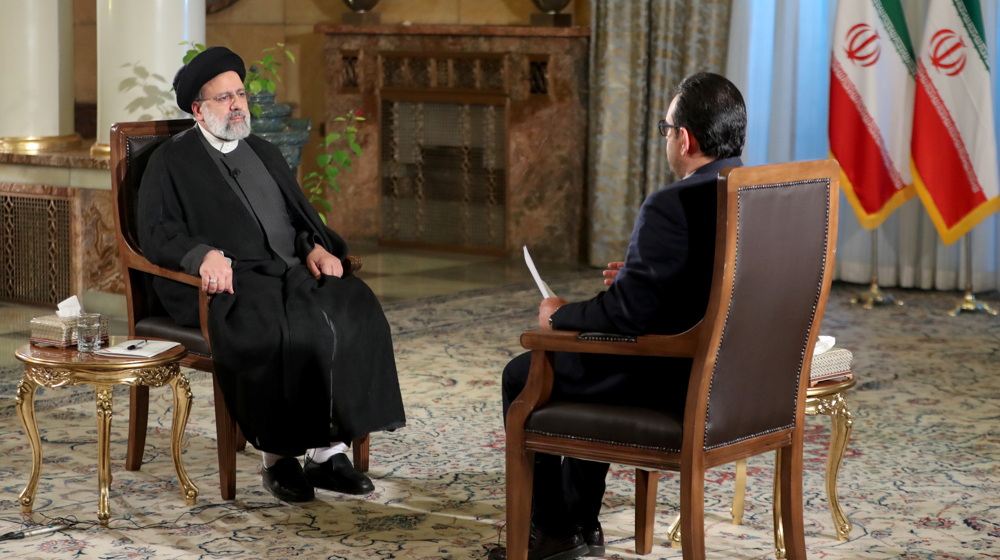
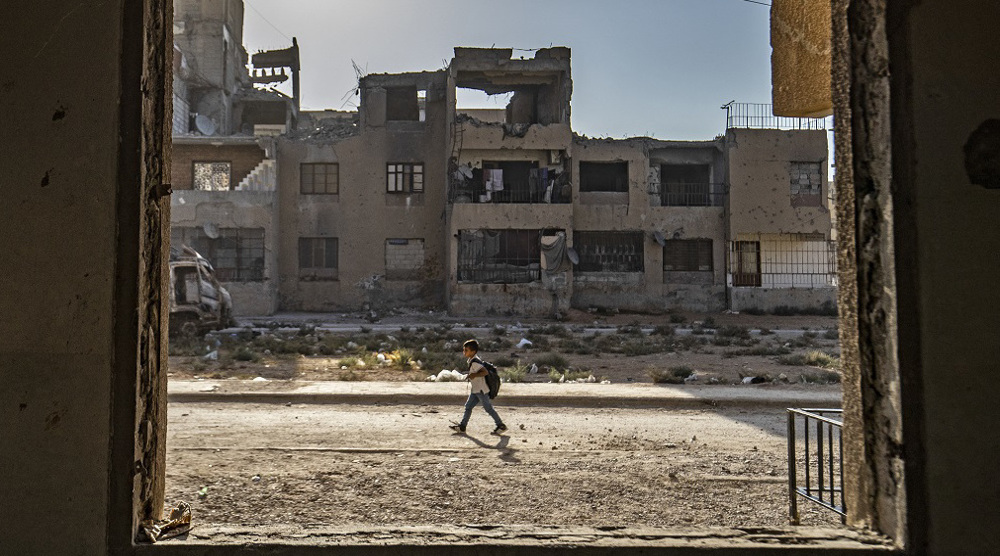
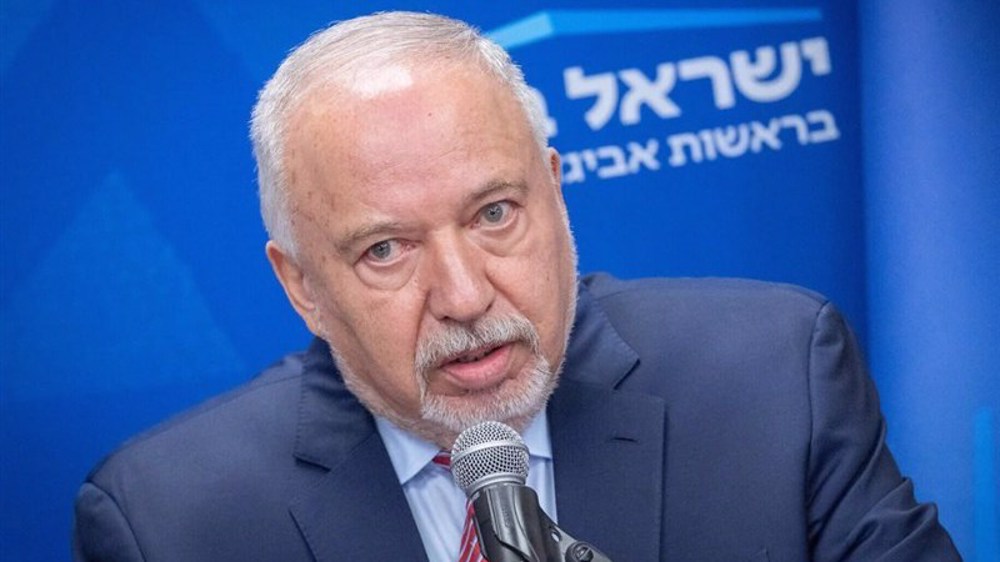
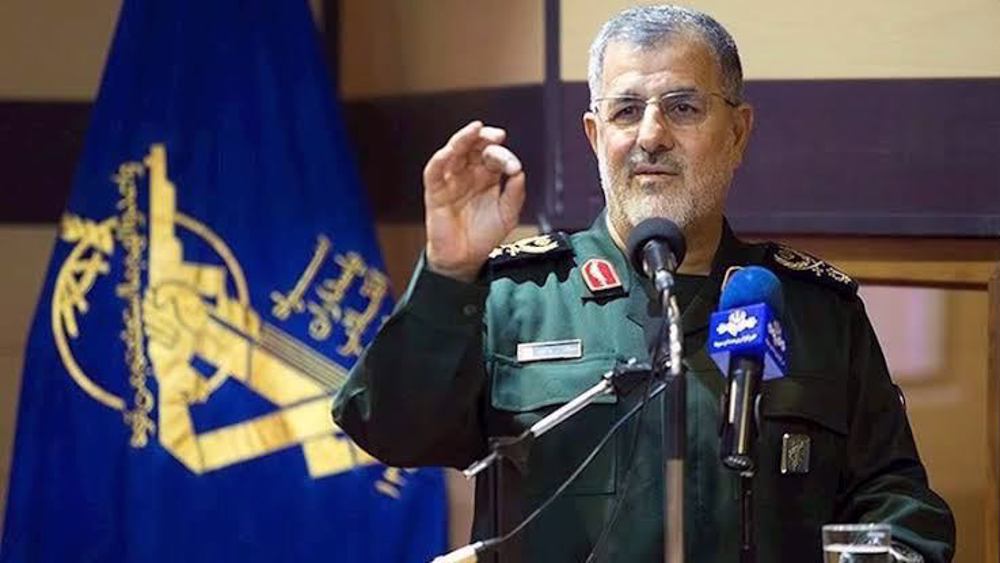
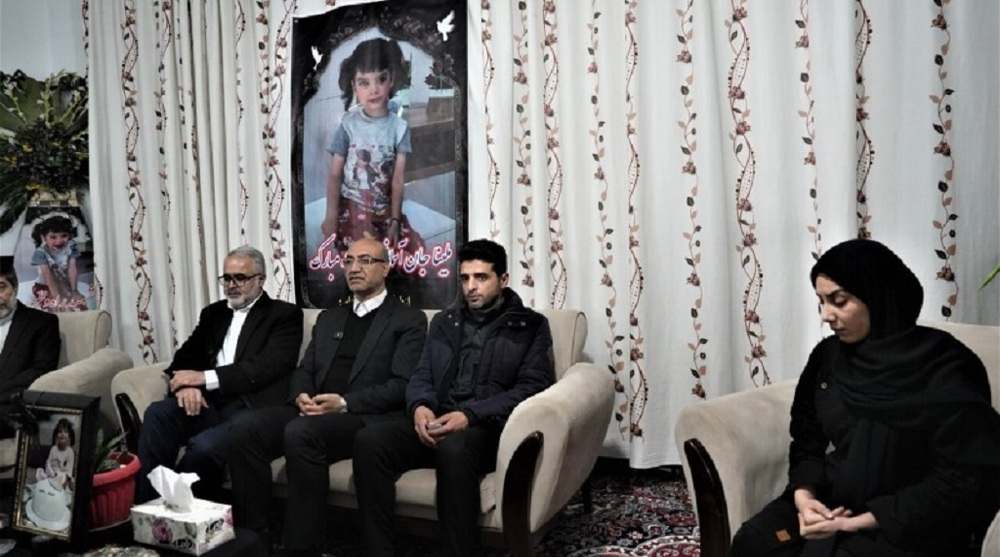




 This makes it easy to access the Press TV website
This makes it easy to access the Press TV website